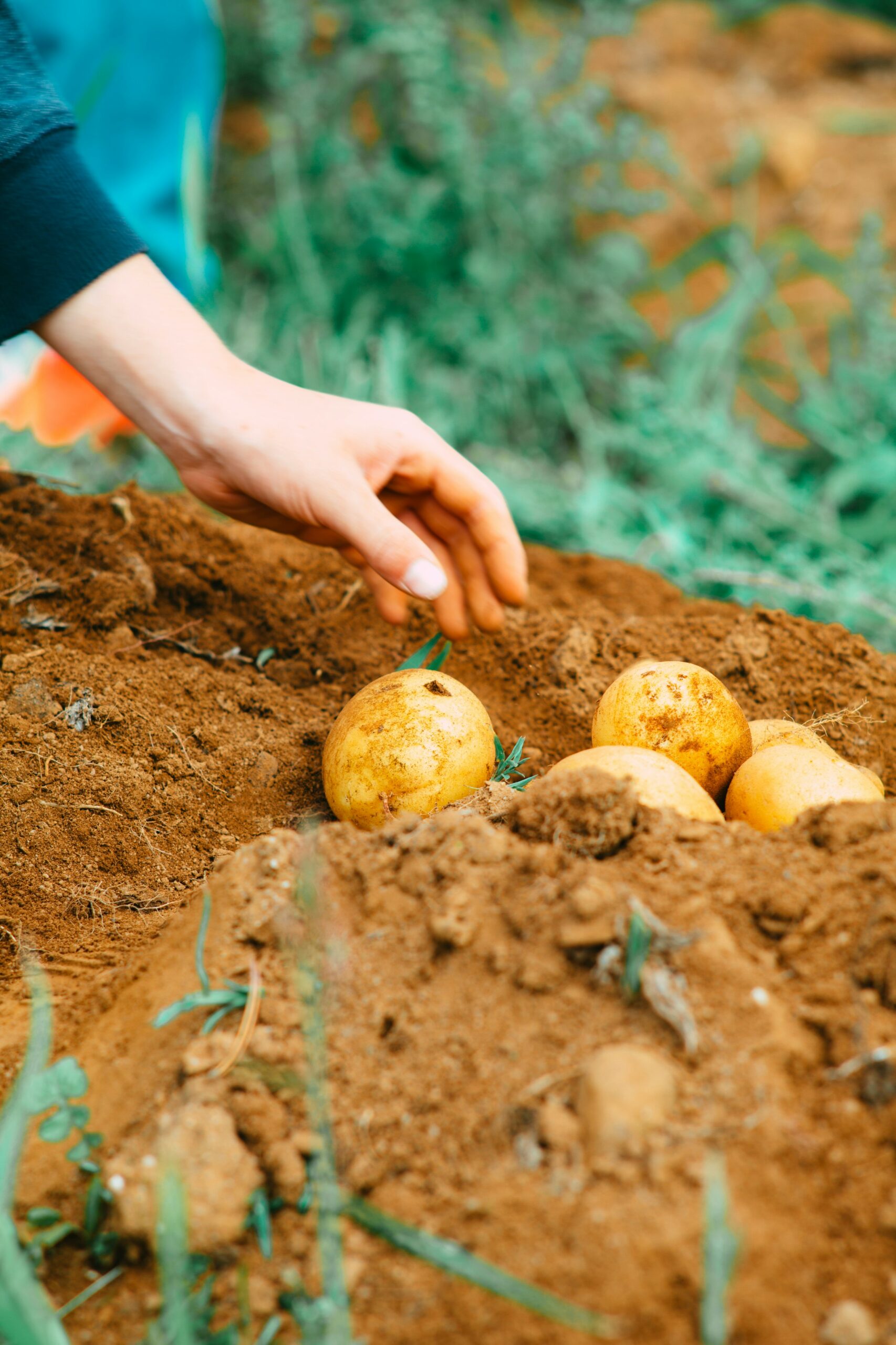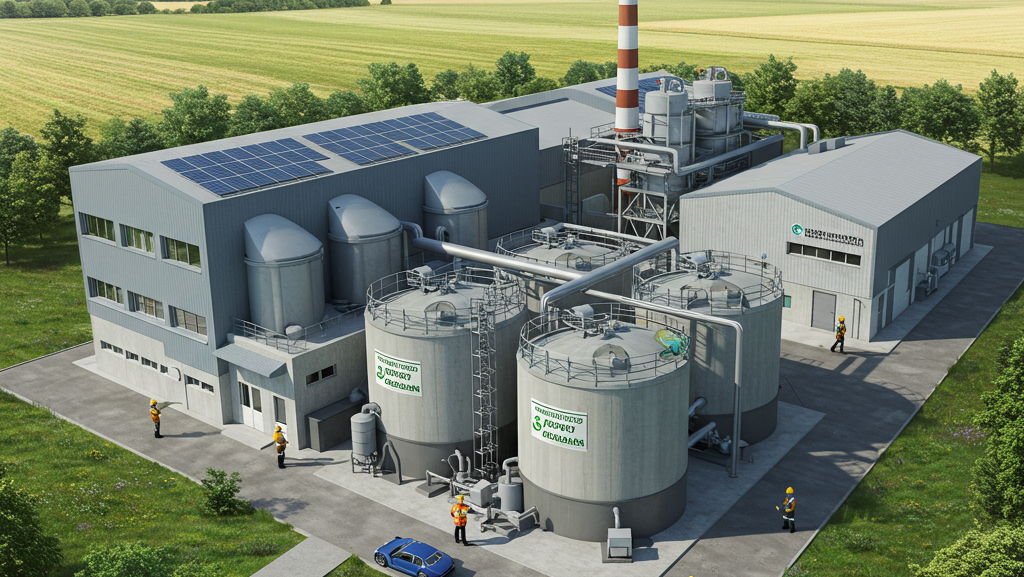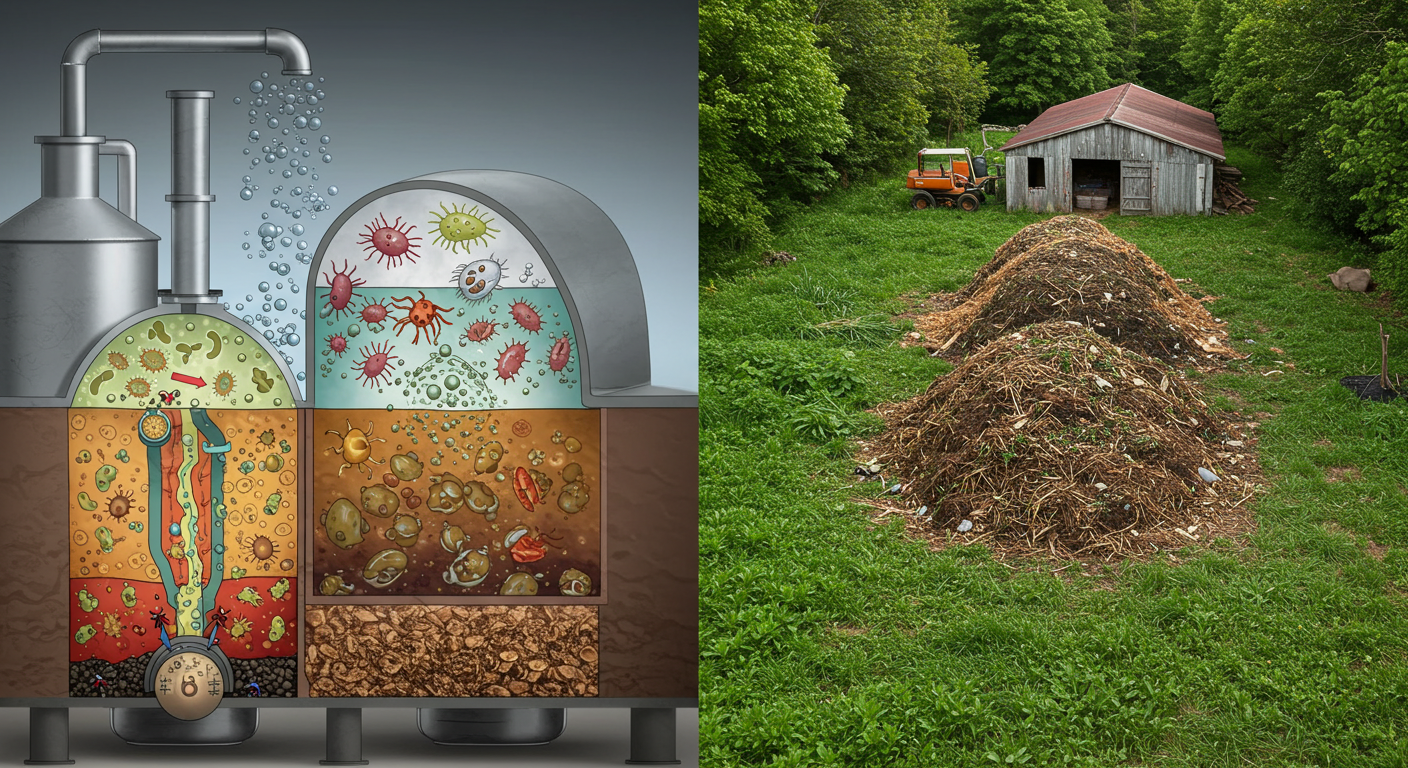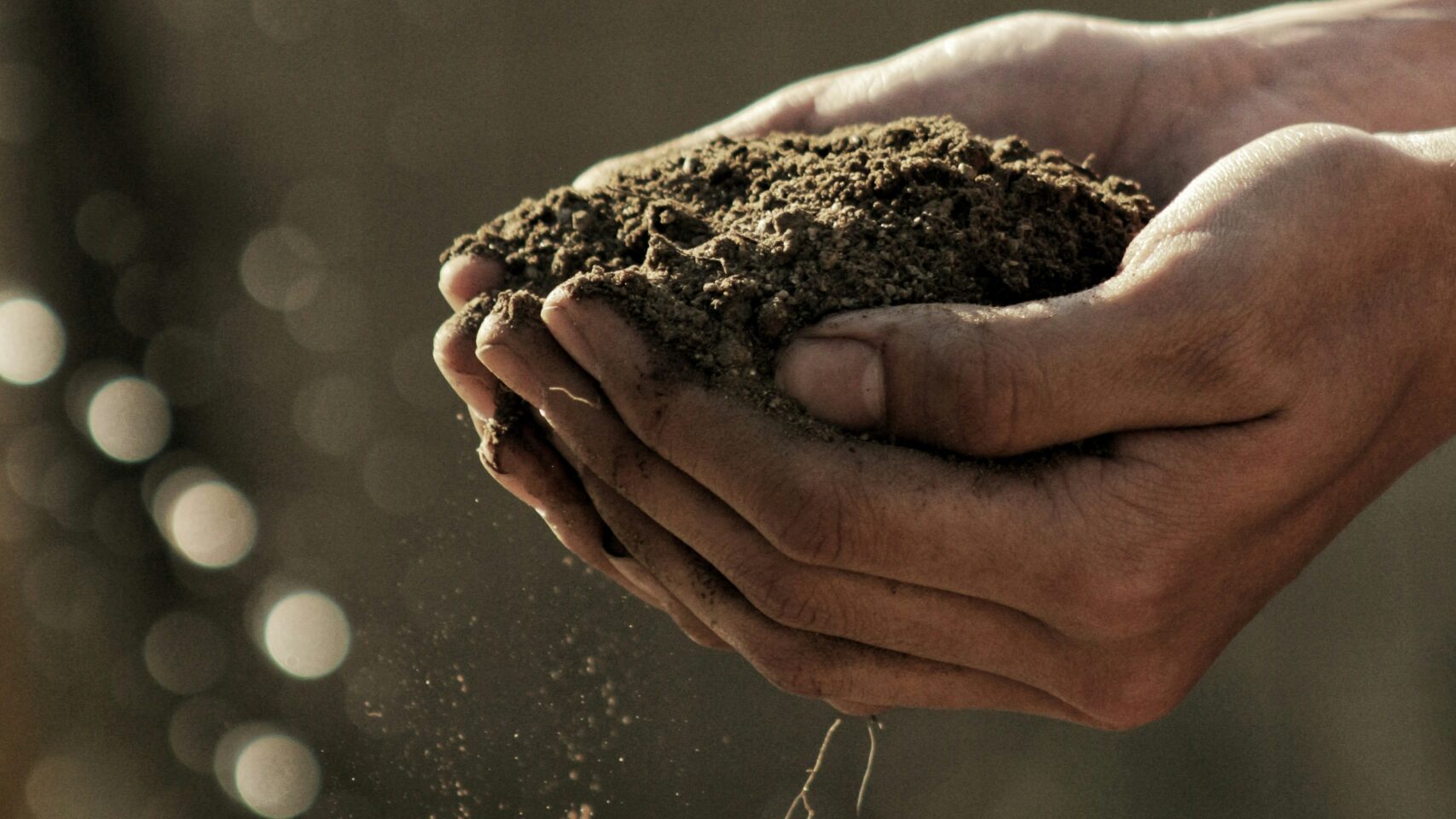Understanding Soil Health
Soil health is a critical concept in sustainable agriculture, reflecting the soil’s ability to function as a living ecosystem that supports plant growth, water filtration, and nutrient cycling. It is a multidimensional attribute that encompasses various factors. Key indicators of soil health include soil structure, organic matter content, nutrient cycling processes, and biological activity.
Soil structure is the arrangement of soil particles and the spaces between them, which influences water movement, root penetration, and gas exchange. Healthy soil typically features a porous structure that retains moisture while allowing excess water to drain away. This structure is pivotal for crop yield as it facilitates root development and nutrient uptake, essential components for robust plant growth.
Another significant aspect of soil health is organic matter, which comprises decomposed plant and animal materials. Organic matter enhances soil fertility by improving nutrient availability, encouraging moisture retention, and fostering beneficial microbial activity. The presence of organic matter is indicative of a soil’s overall health and contributes positively to crop yield by sustaining nutrient levels over time.
Nutrient cycling is a vital function of healthy soil. A well-balanced nutrient cycle ensures that essential macronutrients such as nitrogen, phosphorus, and potassium are sufficiently available for plant use. This cycle is often maintained by the ongoing interactions between soil organisms and organic materials. Biological activity, including the presence of microorganisms and soil fauna, plays a crucial role in breaking down organic matter and releasing nutrients, further enhancing soil fertility.
In conclusion, understanding soil health is fundamental for sustaining agricultural practices. Healthy soil not only supports increased crop yield but also promotes environmental sustainability by maintaining biodiversity and ecosystem services. By focusing on the key indicators of soil health, farmers can implement practices that enhance soil quality, ultimately benefiting both their crops and the environment.
The Role of Nutrients in Soil Health
Soil health is fundamentally linked to its nutrient composition, which plays a critical role in determining the success of crop growth and overall agricultural productivity. The essential nutrients necessary for maintaining healthy soil can be categorized into macronutrients and micronutrients. Macronutrients, which include nitrogen (N), phosphorus (P), and potassium (K), are required in larger quantities and are crucial for the fundamental growth processes of plants. Nitrogen, for instance, is vital for the synthesis of proteins and chlorophyll, while phosphorus supports energy transfer and root development. Potassium aids in regulating various physiological functions, including water uptake and photosynthesis, ultimately enhancing crop resilience against stress factors.
On the other hand, micronutrients, despite being needed in smaller amounts, are equally important for soil health and fertility. Elements such as iron, manganese, zinc, and copper participate in key enzyme reactions and overall plant metabolism, significantly impacting crop yield. Deficiencies in these micronutrients can lead to stunted growth, poor crop quality, and reduced yields. Therefore, a balanced supply of both macro and micronutrients is essential for sustaining soil fertility and promoting optimal agricultural outputs.
In addition to understanding the role of these nutrients, it is equally important to focus on soil amendments. Soil amendments, including organic matter, compost, and fertilizers, can enhance nutrient availability and promote soil structure. They improve nutrient retention, water holding capacity, and microbial activity, resulting in a richer and more productive soil environment. Regular soil testing is recommended to determine nutrient levels and identify specific deficiencies, enabling tailored nutrient management strategies. By implementing appropriate soil amendments and maintaining optimal nutrient levels, farmers can significantly improve soil health, thereby ensuring high crop yields and sustainable agricultural practices.
Soil Structure and Its Importance
Soil structure refers to the arrangement of soil particles and the spaces between them, creating a framework that affects various soil functions. Good soil structure is essential for promoting water retention, enhancing aeration, and facilitating root penetration. These factors play a crucial role in supporting healthy plant development and increasing crop yield. Well-structured soil allows for an optimal exchange of air and water, which is critical for the survival of both plant roots and beneficial microorganisms.
When soil has a good structure, it possesses stable aggregates that enhance its ability to hold moisture. This water retention capability is vital during dry spells, ensuring that crops can access adequate moisture for growth. Additionally, well-aerated soil permits the movement of air, providing essential oxygen to plant roots and soil organisms. The presence of air cavities within the soil structure contributes to healthy root systems, allowing them to penetrate deeper and access nutrients more effectively.
To improve soil structure and, subsequently, crop productivity, certain agricultural practices can be employed. For instance, crop rotation can break pest and disease cycles, leading to improved soil conditions. This technique also promotes biodiversity, which can enhance soil health by fostering various soil organisms. Furthermore, reducing tillage practices helps maintain soil aggregates, minimizes disruption to the soil ecosystem, and conserves moisture. No-till or minimal tillage practices can enhance that structure while preventing soil erosion, ultimately leading to improved crop yields.
The relationship between soil structure and crop productivity highlights the importance of managing soil health through sustainable practices. By understanding and implementing techniques that foster good soil structure, farmers can create a thriving environment that promotes not only crop yield but also overall agricultural sustainability.
Microbial Life in the Soil
Soil health is fundamentally interconnected with the diverse community of microorganisms residing within it. These microbes, which include bacteria, fungi, protozoa, and nematodes, play an indispensable role in promoting soil fertility and enhancing crop yields. Beneficial microorganisms contribute to nutrient cycling, making essential elements more available to plants. For instance, certain bacteria have the capability to fix atmospheric nitrogen, converting it into a form that plants can easily assimilate. This natural process significantly reduces the need for synthetic fertilizers, which can be detrimental to overall soil health.
Moreover, the interaction between soil microbes and plants extends beyond nutrient availability. Beneficial fungi form symbiotic relationships with plant roots, creating mycorrhizal networks that facilitate the exchange of water and nutrients. This not only improves the drought resilience of crops but also enhances their nutrient uptake. The presence of healthy microbial communities can enhance plant health, making them more robust against diseases and pests. This relationship illustrates the vital role microbial life plays in sustaining agricultural productivity.
However, agricultural chemicals, such as fungicides and herbicides, can severely impact microbial populations and disrupt these beneficial interactions. The overuse of these chemicals has been shown to diminish microbial diversity, leading to a decline in soil health. Reduced microbial activity can result in nutrient depletion, lower crop yields, and an increased susceptibility to diseases. Therefore, a balanced approach to agriculture that minimizes chemical inputs while promoting microbial vitality is essential for maintaining soil health and optimizing crop production.
Soil Conservation Practices for Healthier Soil
Maintaining soil health is essential for sustainable agriculture and the production of high-yield crops. Farmers can implement various soil conservation practices aimed at enhancing soil quality while preventing erosion and degradation. One of the most effective methods is cover cropping, which involves planting specific crops during off-seasons to protect bare soil. Cover crops, such as clover and vetch, not only prevent soil erosion but also improve soil structure and increase organic matter. These plants can fix nitrogen in the soil, providing essential nutrients for subsequent crops and ultimately leading to better yields.
Another significant practice is contour farming, which entails plowing across the slope of the land rather than up and down. This technique creates natural barriers that help slow down water runoff and minimize soil erosion. By following the contours of the land, farmers can promote better water retention and reduce the need for irrigation, leading to healthier soil and improved crop yields. In addition, contour farming can enhance the infiltration of water, facilitating deeper root growth, which is crucial for the resilience of crops against dry conditions.
Agroforestry is another promising approach that integrates trees and shrubs into agricultural landscapes. This practice not only promotes biodiversity but also enhances the soil’s nutrient content through leaf litter and root biomass. The presence of deep-rooted trees improves soil aeration and structure, while their canopies provide shade, reducing evaporation rates. Moreover, agroforestry practices can help control pests and diseases, leading to a healthier ecosystem overall.
By adopting these soil conservation practices, farmers can safeguard the health of their soils. Each practice contributes to building a sustainable agricultural system that supports high crop yields while protecting vital soil resources. The overall benefits include enhanced productivity, increased resilience to climate variability, and prolonged soil fertility, which are essential for future agricultural success.
The Impact of Soil Erosion on Crop Yield
Soil erosion is a significant concern in agricultural practices, as it directly influences soil health and crop yield. This phenomenon occurs when soil is displaced by various factors, leading to the degradation of arable land. The primary causes of soil erosion include water runoff from rainfall, wind, and human activities such as deforestation and improper agricultural practices. Each of these factors contributes to the loss of the fertile topsoil, which is essential for maintaining productive crops.
The long-term consequences of soil erosion are profound, affecting not only soil quality but also agricultural sustainability. As topsoil is depleted, the remaining soil may be less capable of retaining moisture and nutrients necessary for healthy crop growth. This reduction in soil fertility can lead to lower crop yields, making it challenging for farmers to sustain their production levels. Moreover, regions that experience significant erosion may also face increased vulnerability to drought, as the diminished soil structure hampers water retention during dry periods.
Mitigating soil erosion is essential to ensure the sustained productivity of agricultural land. Various preventive measures can be adopted to combat this issue. Implementing conservation tillage, for example, allows for the preservation of soil structure, enabling better water infiltration and erosion resistance. Additionally, planting cover crops can reduce water runoff and protect the soil from the elements. Contour farming and the construction of terraces further help in managing water flow and minimizing erosion on sloped lands.
In summary, addressing soil erosion is crucial for maintaining soil health and maximizing crop yield. Through a combination of sustainable farming practices and conservation techniques, farmers can protect their land from erosion and promote long-term agricultural viability.
Climate Change and Its Effects on Soil Health
Climate change is increasingly recognized as a significant factor affecting soil health, which in turn directly influences crop yield. The altering weather patterns brought on by climate change, including more frequent and severe droughts, floods, and temperature extremes, can lead to substantial degradation of soil quality. Such environmental stressors result in the erosion of topsoil, loss of organic matter, and disruption of beneficial microbial communities that are essential for nutrient cycling. This degradation ultimately jeopardizes agricultural productivity.
Moreover, changing precipitation patterns can exacerbate soil compaction and reduce its ability to retain moisture, exacerbating stress on crops. When soils become less capable of holding water due to compaction or erosion, farmers must invest more resources into irrigation, which may not be sustainable during prolonged droughts. Conversely, excessive rainfall can lead to waterlogged soils, further straining crop resilience. Addressing these issues necessitates adaptive strategies that focus on enhancing soil resilience through sustainable practices.
One of the most effective methods for improving soil health in the context of climate change is the implementation of crop rotation and cover cropping systems. These practices promote biodiversity, improve soil structure, and increase organic matter retention. Additionally, reducing tillage can help prevent soil erosion by maintaining the integrity of soil aggregates. Farmers can employ agroecological principles, which emphasize working with natural systems rather than against them, to enhance soil resilience. Education and awareness regarding the benefits of these adaptive strategies are vital for farmers transitioning to sustainable methods.
In conclusion, understanding the intricate relationship between climate change and soil health is essential for ensuring food security and optimizing crop yield. By adopting sustainable agricultural practices, farmers can mitigate the adverse effects of climate fluctuations on soil quality and contribute to a more resilient agricultural system.
Assessing Soil Health: Tools and Techniques
Assessing soil health is crucial for maintaining soil productivity and ensuring optimal crop yield. Various methods exist to evaluate soil health, combining laboratory tests and field assessments to provide comprehensive insights. By adopting these techniques, farmers can gauge the viability of their soil, identify deficiencies, and make informed decisions regarding amendments and management practices.
Laboratory tests are fundamental in determining soil health indicators. These tests typically analyze soil texture, nutrient content, pH levels, microbial activity, and organic matter. For example, soil texture is assessed through methods such as hydrometer or sieve analysis, which help in understanding water dynamics and root penetration capabilities. Soil pH is equally critical, as it influences nutrient availability. A pH test can reveal whether soil is acidic or alkaline, guiding adjustments necessary for optimal plant growth.
Another essential laboratory analysis is the evaluation of soil nutrients. Regular testing of nitrogen, phosphorus, potassium, and micronutrients allows farmers to ensure their soil has the appropriate nutrient profile for crops. Meanwhile, assessing organic matter content can provide insights into soil structure, aeration, and moisture retention capabilities, all of which play vital roles in crop productivity.
Field assessments complement laboratory analysis by providing practical observations of soil conditions. Tools such as soil probes, moisture meters, and compaction testers enable farmers to evaluate soil texture, moisture levels, and overall health directly in the field. Indicators such as earthworm populations, root development, and crop performance can also signal soil health trends. By recognizing these visual and physical cues, farmers can correlate soil health with crop yield more effectively.
In summary, a combination of laboratory tests and field assessments provides a comprehensive understanding of soil health. By utilizing these robust tools and techniques, farmers can proactively manage soil conditions, ultimately enhancing their crop yield and sustainability efforts.
Conclusion
In the discourse of agriculture, the relationship between soil health and crop yield cannot be overstated. It is evident that sustainable soil management practices play a crucial role in enhancing agricultural productivity. Healthy soils are foundational to robust crop yields, as they provide essential nutrients, better water retention, and improved structure, which collectively contribute to the vitality of plants. By adopting practices such as crop rotation, cover cropping, and reduced tillage, farmers can significantly improve soil health, which in turn ensures food security and economic viability.
The importance of maintaining soil health fosters not only improved agricultural output but also a more resilient ecosystem. As we navigate the challenges posed by climate change and population growth, prioritizing sustainable agriculture becomes more critical than ever. The integration of innovative research and proven techniques can empower farmers to optimize their practices, paving the way for efficient resource usage and environmental stewardship.
Additionally, it is imperative for stakeholders—including farmers, researchers, and policymakers—to work collaboratively towards common goals. Investing in education about soil health and providing access to resources will enable agricultural communities to implement effective practices. Furthermore, supportive policies that advocate for sustainable practices will create a conducive environment for farmers to embrace soil conservation efforts.
In summary, the path to sustainable agriculture is intricately linked to the health of our soils. By recognizing the vital connection between soil and crop yield, we can inform better agricultural practices that ensure not only productive farming but also the safeguarding of our environment for future generations. The responsibility lies with all of us to promote and sustain these essential practices, thereby fostering a healthier planet.





